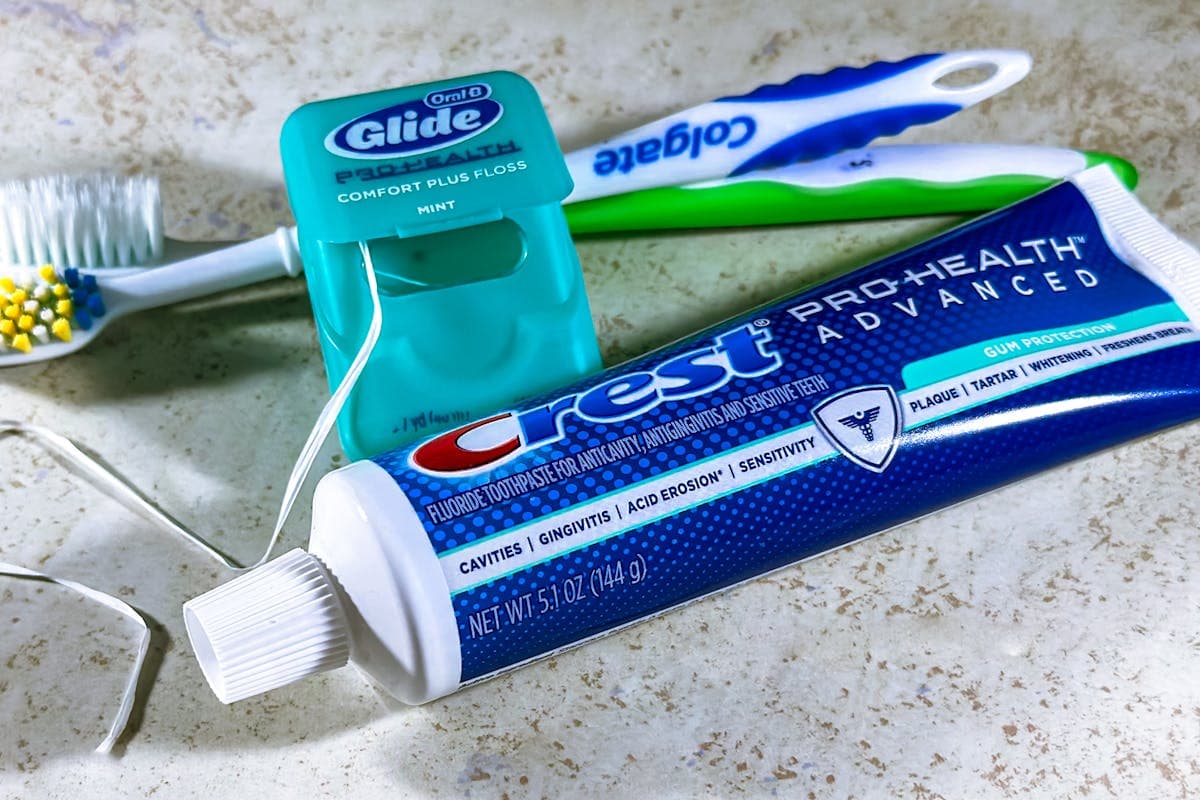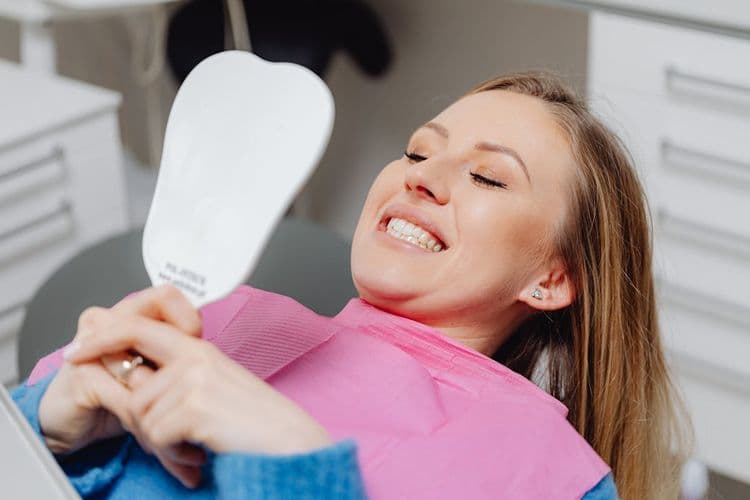Teeth whitening, often associated with youth and beauty, is increasingly becoming a sought-after dental procedure among older adults. However, with age-related dental concerns such as enamel thinning and intrinsic discoloration, the process becomes more complex and requires more attention. While professional treatments are often recommended, there are specific precautions to be taken and various methods to be considered. It is essential to understand the benefits and potential risks involved, and how these procedures can contribute to an older adult’s overall oral health and self-esteem. As we explore this topic further, we invite you to join us in this enlightening discussion.
Understanding Teeth Discoloration
While it’s common to associate a radiant smile with white teeth, understanding the causes of teeth discoloration becomes essential, particularly for older adults. The aging effects on oral health are significant, leading to various changes in tooth color. The primary causes of discoloration include plaque buildup, tobacco use, consumption of certain foods and drinks like coffee, tea, and wine, and certain medications. Over time, the enamel layer of teeth can thin, revealing the darker dentin beneath, an inevitable result of aging. Additionally, older adults may experience intrinsic discoloration, which occurs within the tooth, due to health issues or medication. By comprehending these causes, individuals can better manage their oral health and aim for a healthier smile.
Safety of Teeth Whitening Procedures
As we turn our attention to the safety of teeth whitening procedures, it is essential to be well-informed about potential risks and how to guarantee safe practices. Despite its popularity and generally good safety profile, teeth whitening is not without its potential complications. The following discussion will focus on illuminating these risks and providing guidance for maintaining safety during the teeth whitening process.
Understanding Teeth Whitening Risks
Despite the common perception that teeth whitening is a harmless procedure, it is essential to understand that there are potential risks involved, especially for older adults. These risks can be categorized into four main types:
- Sensitivity Issues: The whitening process can increase tooth sensitivity, making it uncomfortable to consume hot or cold foods and drinks.
- Gum Irritation: Whitening products can sometimes cause irritation to the gums, leading to discomfort or even pain.
- Enamel Damage: Excessive or improper use of whitening agents can lead to enamel erosion, making teeth more prone to cavities.
- Uneven Whitening: The procedure might not always result in an even color, especially when dealing with dental restorations like fillings or crowns.
Therefore, understanding these risks is vital before undergoing any teeth whitening procedure.
Ensuring Safe Whitening Practices
To guarantee safe teeth whitening practices, particularly for older adults, several factors need to be taken into account. It’s vital to seek regular dental consultations before initiating any whitening regimen, as this can help identify potential risks and tailor a suitable plan. Dentists can provide professional guidance on the appropriate whitening techniques, taking into account the individual’s oral health status and any pre-existing conditions.
A significant area of concern in teeth whitening is sensitivity management. Older adults often have thinner enamel, making their teeth more susceptible to sensitivity following whitening procedures. As a result, usage of desensitizing products or opting for gentler whitening methods may be advisable. Ensuring safe whitening practices fundamentally involves a blend of professional intervention and personalized care.
Professional Teeth Whitening Methods
While many older adults may consider over-the-counter teeth whitening products, professional teeth whitening methods often yield more effective results. These treatments typically involve in-office procedures performed by dental professionals, using specialized equipment and materials.
Among the most popular professional teeth whitening methods are:
- Laser treatments: This procedure uses light energy to speed up the bleaching process, resulting in a brighter smile in less time.
- In-office bleaching: This involves direct application of a whitening agent to the teeth, often combined with heat or light.
- Custom trays: These are made to fit your mouth perfectly for at-home use, but under professional guidance.
- Internal bleaching: Ideal for discolored teeth due to injury or medical treatment.
These methods are typically safe and effective, but it’s important to consult with a dentist before starting any whitening regimen.

At-Home Teeth Whitening Options
While professional teeth whitening methods have their merits, at-home options can offer convenience and affordability. Within this category, individuals can choose between commercially available DIY whitening kits or explore natural whitening remedies. The following discussion will provide a detailed overview of these at-home alternatives, focusing on their efficacy, application, and potential risks.
DIY Whitening Kits
For older adults seeking a brighter smile, DIY whitening kits present an appealing at-home option. These kits typically contain either a whitening gel or strips, each with their unique benefits and effectiveness.
To understand better, these are the key aspects of DIY whitening kits:
- DIY gel options: These are typically applied using a custom tray. They can provide a professional level of whitening, but require careful application.
- Whitening strips effectiveness: These are easier to apply than gels, but may not be as potent.
- Sensitivity: Both options can cause sensitivity. It’s important to follow the instructions to minimize this.
- Duration of effect: Results can last between 6 months to 3 years, based on oral hygiene and dietary habits.
When used correctly, DIY kits can safely and effectively brighten your smile.
Natural Whitening Remedies
Have you considered natural remedies for teeth whitening? Aging often causes discoloration, but a brighter smile could be just a pantry away. Consider baking soda, a common household product, known for its whitening properties. It gently scrubs away surface stains on teeth, restoring a cleaner, whiter surface. Alternatively, coconut oil, rich in lauric acid, can help remove bacteria in plaque that turn teeth yellow. This method, called ‘oil pulling’, involves swishing a tablespoon of coconut oil in your mouth for about 15 minutes. Both of these solutions are cost-effective, safe, and natural. However, remember that these remedies should complement, not replace, regular dental care and check-ups. Whitening is more than cosmetic – it’s about maintaining a healthy, vibrant smile.
Costs of Teeth Whitening
Steering through the financial aspect of teeth whitening can seem challenging, especially due to the plethora of options available. Teeth whitening prices vary greatly based on the method chosen, which can affect the accessibility for some older adults.
Here are four budget-friendly options to evaluate:
- Over-the-Counter Products: These include whitening strips, gels, and toothpastes. Prices range from $20 to $100.
- Dentist-Provided Take-Home Kits: Customized to fit your teeth, these kits are more expensive, averaging around $300.
- In-Office Whitening: The fastest but most expensive option, ranging from $300 to $1,000.
- Natural Remedies: Such as baking soda or apple cider vinegar. These are the least expensive but results vary.
Understanding these options can help you select the most appropriate and affordable teeth whitening method.
Maintaining Your Whitened Teeth
Achieving that brilliant, whitened smile is only half the journey; the true victory lies in sustaining it over time. Teeth maintenance is paramount for preserving that fresh, bright appearance. This involves consistent oral hygiene practices such as regular brushing, flossing, and dental visits. Additionally, reducing intake of substances that stain teeth, like coffee, tea, and tobacco, can go a long way in maintaining your whitened teeth. The use of whitening toothpaste and mouthwash can also support whitening longevity. However, it’s important to remember that overuse of these products can harm enamel. For personalized advice on maintaining the ideal brightness of your smile, consider consulting with a dental professional. They can provide techniques tailored to your specific needs and lifestyle.
Common Teeth Whitening Myths
While it’s significant to understand the steps for maintaining your whitened teeth, it’s equally important to dispel any misconceptions surrounding the process of teeth whitening, especially for older adults. For the purpose of myth debunking, we will address the most common teeth whitening misconceptions.
- Myth 1: Teeth whitening weakens your teeth: On the contrary, teeth whitening procedures do not harm the tooth’s structure. They simply remove stains from your teeth’s enamel.
- Myth 2: All teeth whitening results are permanent: Unfortunately, no whitening procedure guarantees lifelong results. Regular touch-ups are necessary.
- Myth 3: Teeth whitening causes unbearable pain: While some sensitivity is normal, unbearable pain is not.
- Myth 4: Over-the-counter products are as effective as professional treatments: Though they can help, professional treatments are typically more effective.
Understanding these myths can help older adults make informed decisions about teeth whitening.
Choosing the Right Whitening Procedure
How does one navigate the myriad of teeth whitening options available? The choice largely depends on the individual’s dental health, personal preferences, and budget. Laser treatments, for instance, offer immediate and significant results. However, they are among the more expensive options and may not be suitable for those with severe sensitivity issues. Over-the-counter kits can be more affordable but require consistent use and may take longer to see results. Always consult with a dental professional before making a decision. They can provide insight into the most effective methods for your specific needs and advise on potential sensitivity issues. Ultimately, the right whitening procedure should be effective, comfortable, and align with your lifestyle.
Frequently Asked Questions
Does Teeth Whitening Affect Dental Implants or Dentures?
Teeth whitening products do not affect dental implants or dentures. It’s essential, however, to follow proper dental implant care and denture maintenance to guarantee their longevity and retain their natural appearance.
Can Teeth Whitening Cause Sensitivity in Older Adults?
Yes, teeth whitening can potentially cause sensitivity in older adults, particularly those with pre-existing dental issues. Sensitivity management and personalized whitening options are key for a comfortable and successful whitening process in this demographic.
How Often Should Older Adults Whiten Their Teeth?
Considering age considerations, whitening frequency for older adults should be tailored to individual needs. However, generally it’s recommended to undergo professional teeth whitening every 6-12 months to maintain ideal results and prevent potential sensitivity.
Are There Any Natural Remedies for Teeth Whitening Suitable for Older Adults?
Yes, there are natural remedies suitable for older adults. Baking soda, due to its abrasive properties, can remove surface stains. Coconut oil pulling may also help whiten teeth by removing plaque and bacteria.
Does Insurance Typically Cover Teeth Whitening Procedures for Older Adults?
Typically, insurance plans do not cover teeth whitening procedures as they are considered cosmetic and not medically necessary. However, it is advisable to check individual policies for potential coverage of various teeth whitening options.


